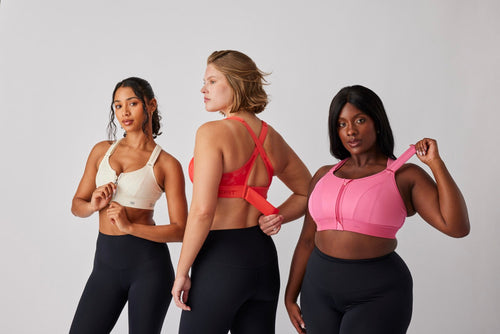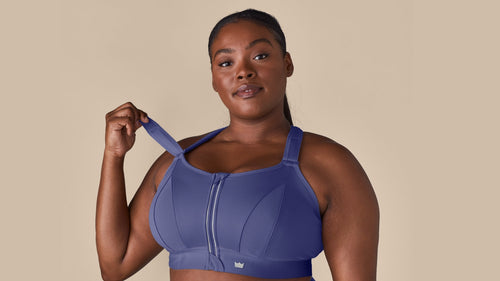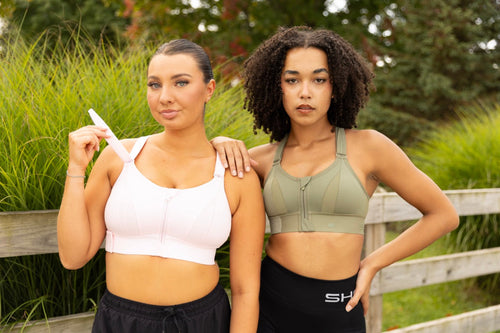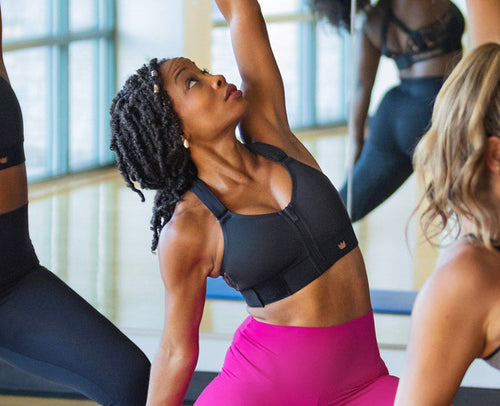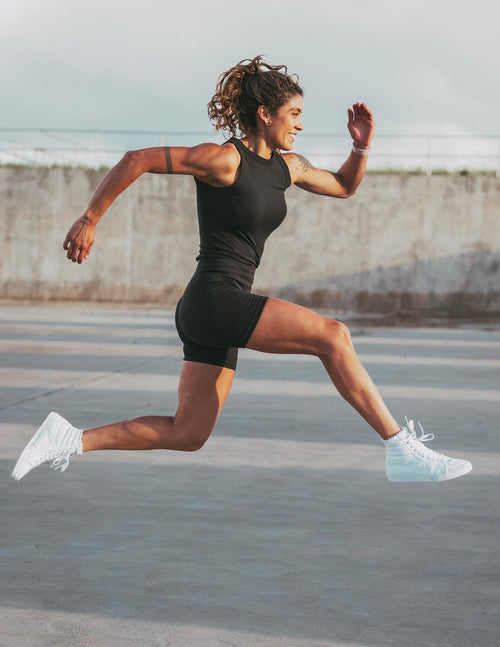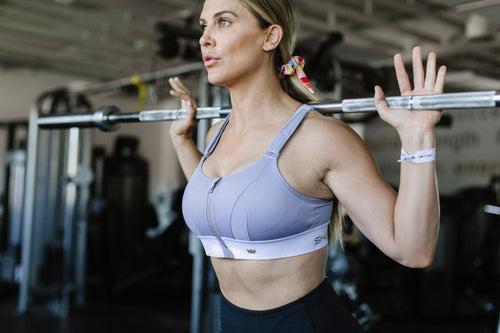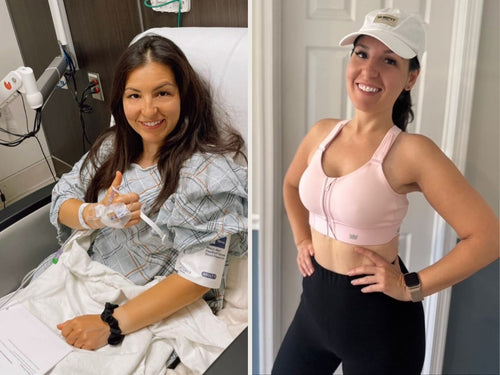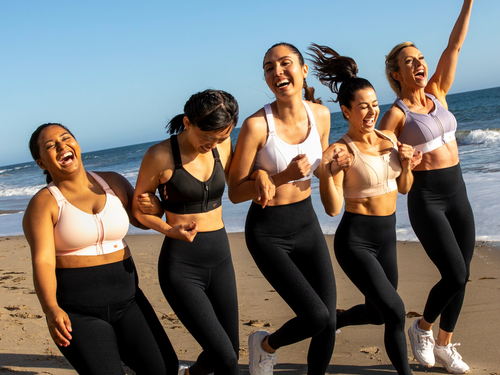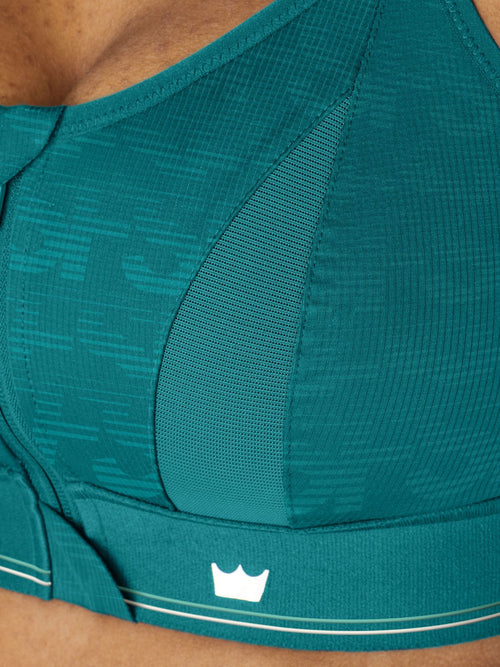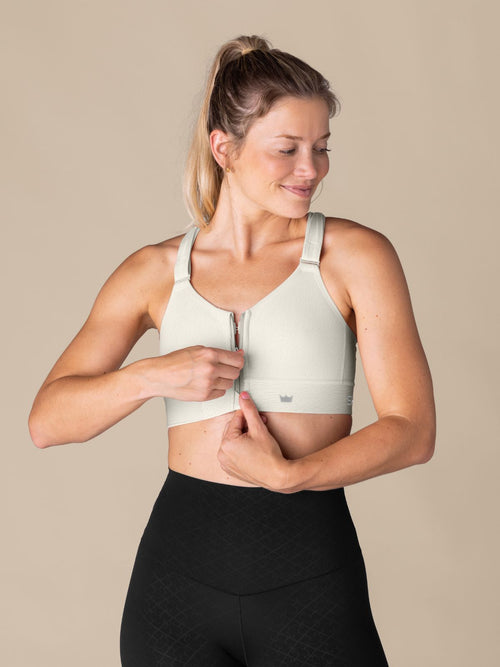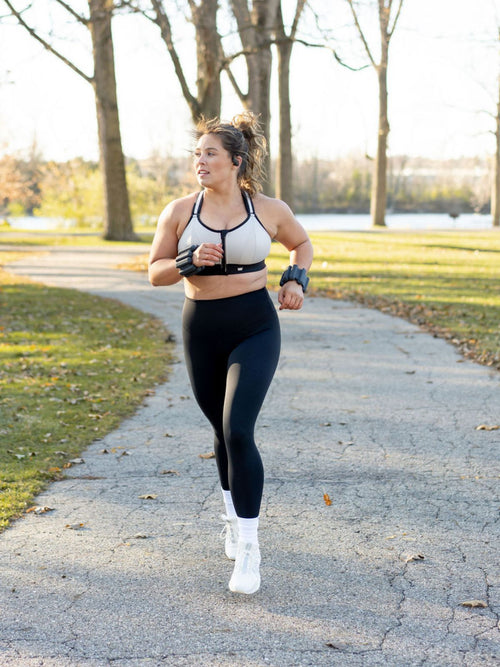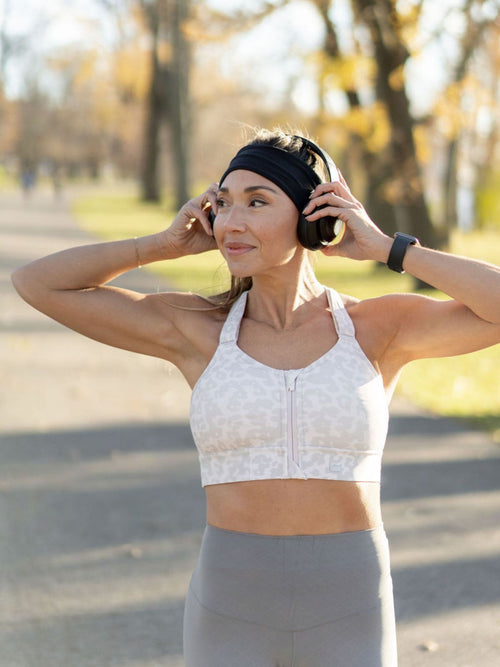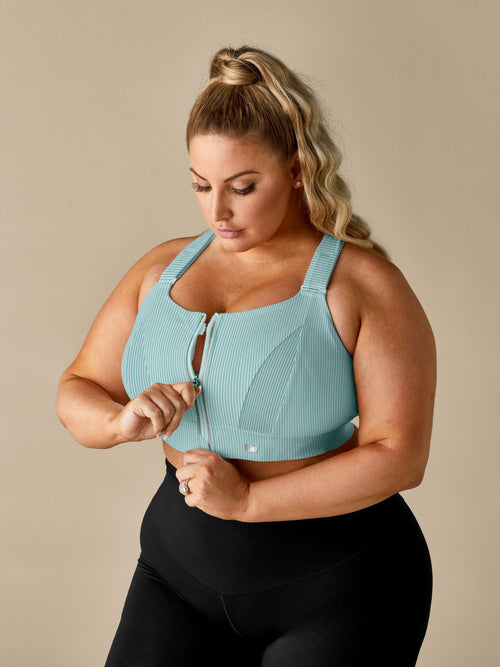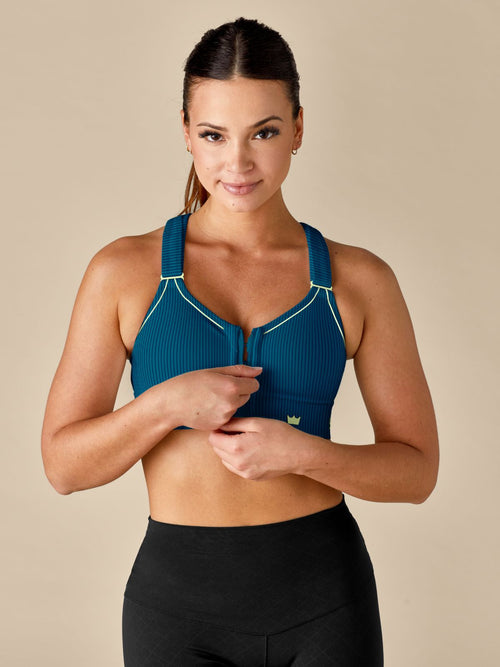15% Off Gift Cards! Shop Now

High Impact Sports Bra Expert Reveals 8 Ways To Reduce The Risk Of Breast Cancer
Awareness: knowledge or perception of a situation or fact
One of those most important things we can do for each other and ourselves is to always grow our minds. Learning as much as we can about the world around us gives one the knowledge to make wise decisions now that affect us in our futures. The month of October is dedicated to focusing on Breast Cancer Awareness. We at Shefit ALWAYS stress the importance of the Breasts; so a month dedicated to our passion is extra special to us! Unfortunately there isn’t one solution to prevent the onset of Breast Cancer.
The most important solution we can preach is awareness-awareness in the ways in which you can decrease your chances of going through Breast Cancer. The Centers for Disease Control and Prevention (CDC) estimates each year more than 200,000 women will be diagnosed with breast cancer. The American Cancer Society estimates about one in eight women in the United States) will be diagnosed with breast cancer at some time in their lives. So, what can we do to reduce that risk? According to nola.com here are some things to work on.
1. Cut back on cocktails
Alcohol is linked to an increased risk of breast cancer, and the more you drink, the higher your risk. Alcohol raises estrogen levels (one of the risk factors for breast cancer), and byproducts of alcohol metabolism may alter DNA in ways that can lead to cancer. Just one drink a day might raise your risk by 10 percent, and there can be as much as a 15 percent increase in risk with just three to six drinks per week (which is still below the often-recommended ‘moderate intake’ of not more than one drink daily for women and two for men). And women who consume at least two drinks daily have been shown to have a 51 percent higher risk of developing breast cancer.
2. Slim down if needed
Being overweight is directly linked to a greater risk of breast cancer. Gaining more than 20 pounds after age 18 can translate to nearly a 50 percent increase in risk of developing postmenopausal breast cancer. On the flip side, losing weight (particularly after menopause) may help to reduce your risk. One large study found that women who lost just four to 11 pounds had more than a 20 percent lower risk of breast cancer than women whose weight stayed the same.
3. Get moving
Being less physically active may also raise our risk of breast cancer. Not only can exercise help with achieving or maintaining a healthy weight, it also can lower estrogen levels, which in turn may reduce the risk of breast cancer.
4. Be selective with carbs
Women with a high-glycemic diet (think white breads, rice, pasta, sugary sweets and soft drinks) have been shown to have an increased risk of breast cancer. All the more reason to nix the white stuff, not to mention the fact that it can make it easier to shed extra pounds. Careful though, even some of the ‘perceived as healthy’ foods are high glycemic (most pretzels, graham crackers, and pita chips, just to name a few), so check labels to ensure that foods contain little or no added sugars or white flour (including enriched wheat flour, potato flour, and rice flour).
5. Experiment with flaxseed
Flaxseeds are one of the top food sources of lignans, compounds that may have anti-cancer properties.
6. Boost folate
A low intake of folate is linked to an increase in breast cancer risk, so focus on adding more folate-rich food: think lentils, spinach, black beans, and turnip greens.
7. Eat the rainbow
There’s not just one, or even a few, cancer-fighting super foods, but eating a broad assortment of veggies and fruits is associated with a lower risk of cancer, including breast cancer.
8. Be smart with soy
It’s one of the most controversial topics when it comes to nutrition and breast cancer. Soy contains phytoestrogens, compounds that have an estrogen-like effect, and while some studies have shown that phytoestrogens may increase breast cancer cell growth, many studies in Asian women suggest that soy may lower the risk of breast cancer. Knowing the risks involved expands your awareness on ways you can prevent your chances of getting Breast Cancer.
From the United Heathcare, here are some of the risk factors involved with Breast Cancer:
- Age: the chance of getting breast cancer increases as a woman gets older
- Family History: having a mother, sister or daughter who has had breast cancer
- Long-term usage of hormones (HRT); oral contraceptive agents
- Longer time menstruating: women who started menstruating before age 12 or continued after age 55 are at greater risk
- Having no children or had their first child after age 30
- Personal history of breast cancer or ovarian cancer
- Lack of breast feeding


